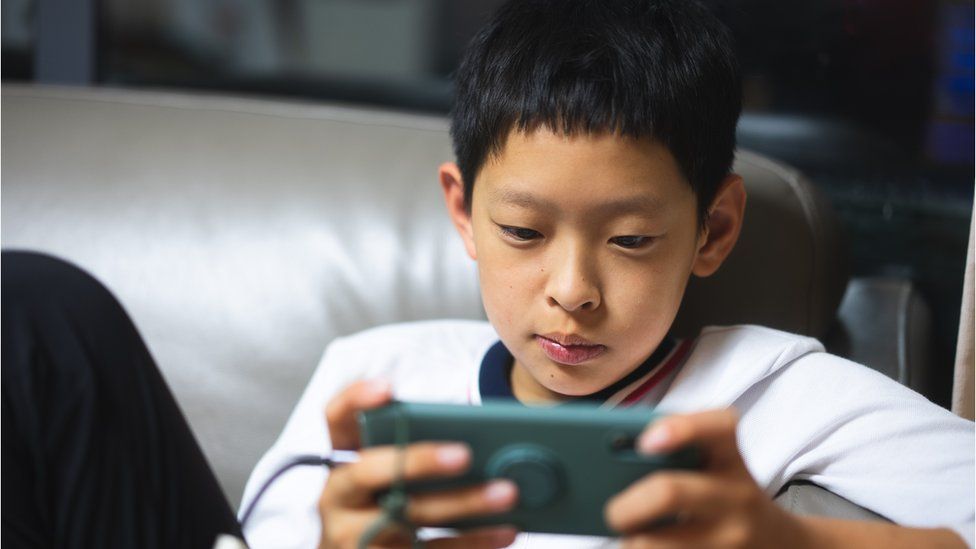China claims youth gaming addiction resolved
- Published

Young people in China have curbed their addiction to video games, a report says.
The claim is made by the China Game Industry Group Committee, affiliated to the gaming regulator.
And it may raise hopes officials - who once attacked video games as "spiritual opium" - may soften the country's severe gaming restrictions.
Since August 2021, children have been banned from gaming for more than three hours a week.
'Remarkable results'
The gaming sector was also hit with a freeze on official approvals for new titles.
It was part of a wider crackdown by the Chinese authorities on the country's enormous technology sector, which includes giants such as Tencent, one of the world's biggest video-games companies.
The report was co-authored by data provider CNG, which concluded 75% of young gamers now played for less than three hours a week.
Chinese game companies, including Tencent, have achieved "remarkable results", it says.
Analysis
By Kerry Allen, BBC Monitoring
The Chinese government has blamed rising gaming addiction among young people for:
- rising "myopia"
- poor concentration
- mental-health problems
- sleep disorders
Concerns about screen time were heightened by Covid lockdowns and the switch to online learning.
Following the gaming restrictions, Douyin, China's version of TikTok, banned under-14s from using the platform for more than 40 minutes a day.
But with winter coming and another surge in Covid cases in the country, children are spending more time at home - and some parents have allowed them access to their accounts, to keep them entertained.
Gaming has also become increasingly popular among Chinese adults.
And this week, the China Daily newspaper reported many elderly care-home residents starting to play online "to strengthen their bonds with their grandchildren".
Asian games market experts Niko Partners said the backdrop to the report was declining revenues in China.
But, founder Lisa Cosmas Hanson said, the future looked more positive, with "momentum in the economy, esports, PC gaming, and enthusiasm among China's 700 million-plus gamers".
"With the restart of game approvals and adjustment to youth regulations at a local level, we are seeing a more positive outlook start to develop," she added.
- Published30 August 2021
- Published12 August 2021
- Published3 August 2021